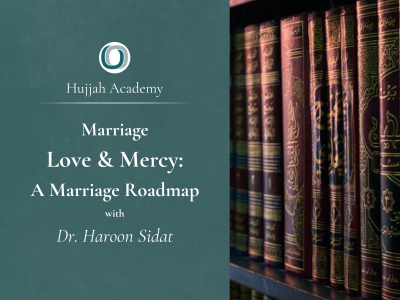Articles
Finding The Right Spouse: The Perils and Pleasures of Proposals
- 2 Minute Read
- May 29, 2025
Marriage and the desire to marry signify a firm commitment. As social beings, it is essential for those with whom we interact to be sincere and dedicated. This necessity is one reason why contracts are established. In contrast, modern dating and non-marital relationships often lack this binding commitment, allowing individuals to leave without facing any real consequences. In marriage, both partners are required to dedicate time, energy, and loyalty to one another, under divine oversight. It marks a significant milestone and offers a degree of social legitimacy and respect, serving as the ideal foundation for long-term commitment and family life. Its very public nature proclaims to the world a lifelong commitment, thus providing a stronger sense of security and long-term planning, especially when raising children. Outside of marriage, there is no such commitment.
Before meeting a spouse, it is essential to strike a balance between doing your homework and trusting in God. They are not mutually exclusive, and it is advisable to adopt both measures. This is best illustrated by a short event where a man asked the Prophet, may God’s peace and blessings be upon him, ‘Shall I release my camel and trust in God?’ to which the Beloved replied, ‘Tie her and trust in Allah’. In other words, we are expected to undertake due diligence before embarking on a task while also placing our trust in God. This is the balance. Trust in God not only provides spiritual guidance but also a sense of peace and reassurance in the marriage preparation process. One critical method is to complete a short marriage course. A paper titled ‘Perceptions and Experiences of Marriage Preparation Among U.S. Muslims’ by Killawi et al, for example, found that premarital education (including counselling and preparation) is associated with higher marital satisfaction and commitment. This helps reduce conflict and strengthen the bond between spouses by improving communication and conflict resolution skills.
Currently, what has occurred and continues is that trusted family members, such as aunts and uncles, assist in arranging marriages. This was undoubtedly the case with my own. Due to the genuine challenges faced by individuals today, marriage apps have emerged to fill a gap that was once managed by charitable efforts. These apps can be beneficial if used with good intentions, and I know many who have found success through them. Regardless of your choice, I recommend keeping your parents involved in the process. In our fiqh tradition, it is understood that parents will always desire what is best for you. For those interested in the fiqh of marriage, you can view my comprehensive playlist on this subject here:
At times, we may become emotionally invested, which is why that level-headed advice is so important. Conversely, parents can be unnecessarily burdensome, which may require the involvement of a local scholar or elder to help. Whatever the case, there is no excuse for a forced marriage in Islam. It’s important to remember that you have the power to make your own decisions and that no one should use religious language to make others do what is un-Islamic. Respect people’s autonomy and use wise counsel to guide them. This empowerment is crucial in the marriage preparation process. In the following article, I will share some ideas on the sort of things you might want to do before, during and after meeting someone.
1Ṣaḥīḥ Ibn Ḥibbān 731.
2Killawi, A., Fathi, E., Dadras, I., Daneshpour, M., Elmi, A., & Altalib, H. (2018). Perceptions and Experiences of Marriage Preparation Among U.S. Muslims: Multiple Voices from the Community. Journal of marital and family therapy, 44(1), 90–106.
More details can be found on our marriage course here:

